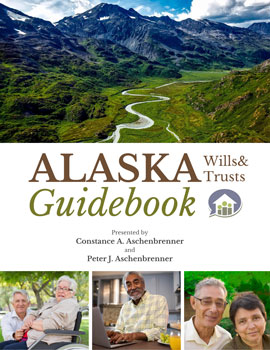These three legal documents have similar names but they are quite different in terms of the estate planning goals they help you accomplish.
A will directs how a person’s estate is to be administered and how his or her assets will be distributed after death. The person who creates the will is called the Testator while the individual who settles the estate is known as the Executor. Naming the Executor and specifying “who gets what” in advance can help eliminate family infighting.
A living will details a person’s wishes concerning his or her medical care, including artificial life support, surgery, or other medical treatments related to an end of life situation or permanent unconsciousness. A living will speaks directly from the person to their doctor on the services they want to receive. Our legislature changed the statutes in 2005 and we now have the Alaska Advanced Healthcare Directive, or healthcare proxy in which you name a trusted person to make medical decisions on your behalf should you become incapacitated.
A pour-over will is a type of will that is used in conjunction with a trust. Instead of governing how your property will be distributed after you pass away, a pour-over will states that assets not placed into your trust will go into the trust when you die. In essence, it names your trust as the beneficiary of any property not held in the trust already.
What is the benefit of a pour-over will? If you neglect to put your assets into your trust (a process known as “funding” the trust), and you don’t have another will in place directing where your assets should go, assets without specific beneficiary designations will pass to your heirs according to the laws of intestate succession. That is, the state will decide “who gets what” based on established guidelines. Chances are the state’s guidelines for asset distribution will not accurately reflect your wishes.
Ideally, you won’t need your pour-over will because your trust has been properly funded. However, it’s reassuring to know you have a safety net, just in case. If you have questions about this or anything else estate planning related please join us for one of our upcoming workshop. You can register online by clicking the link here.





